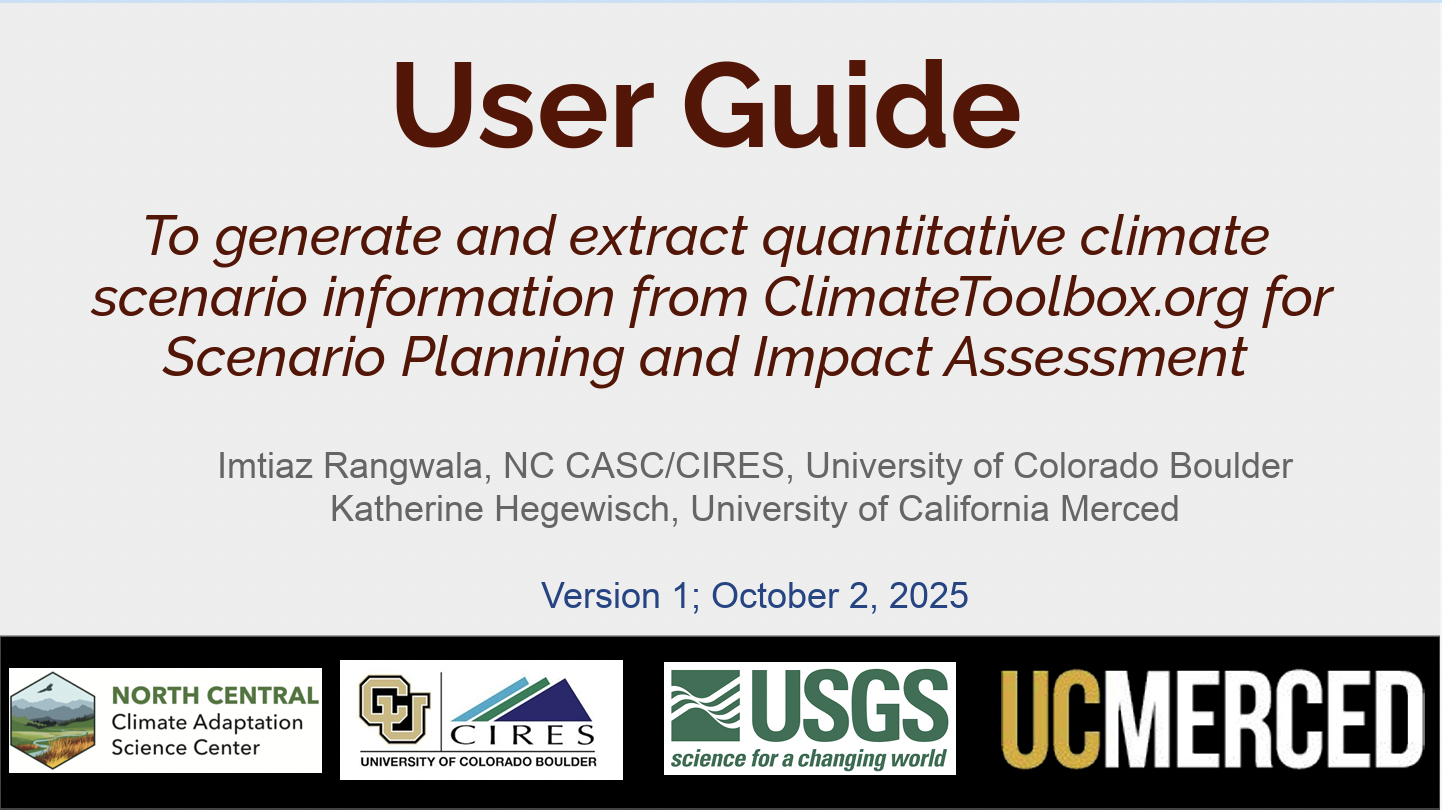
Climate Scenarios User Guide
We created a user guide as an overview on the process of generating and extracting climate scenario information from the ClimateToolbox for scenario planning and impact assessment. This includes the use of the Future Climate Scenarios tool, the Future Climate Scatter Tool and the Future Time Series tool.
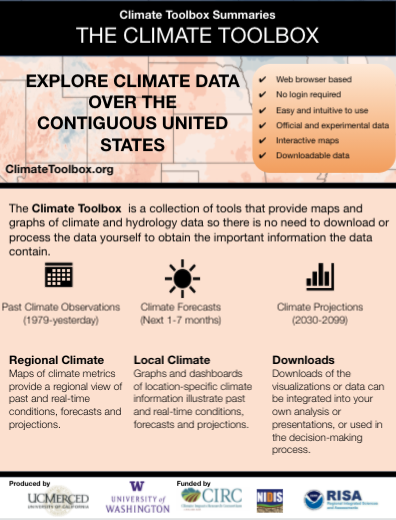
Tool Summaries
We created 2-4 page documents to highlight several tools:
- Historical Water Watcher Tool
- Future Crop Suitability Tool
- Future Vegetation Tool
- Drought Stripes Tool
- Tribal Climate Tool
- Climate Analogs Tool
- Subseasonal Forecast Tool
These are also available on the initial splash screen of the actual tool.
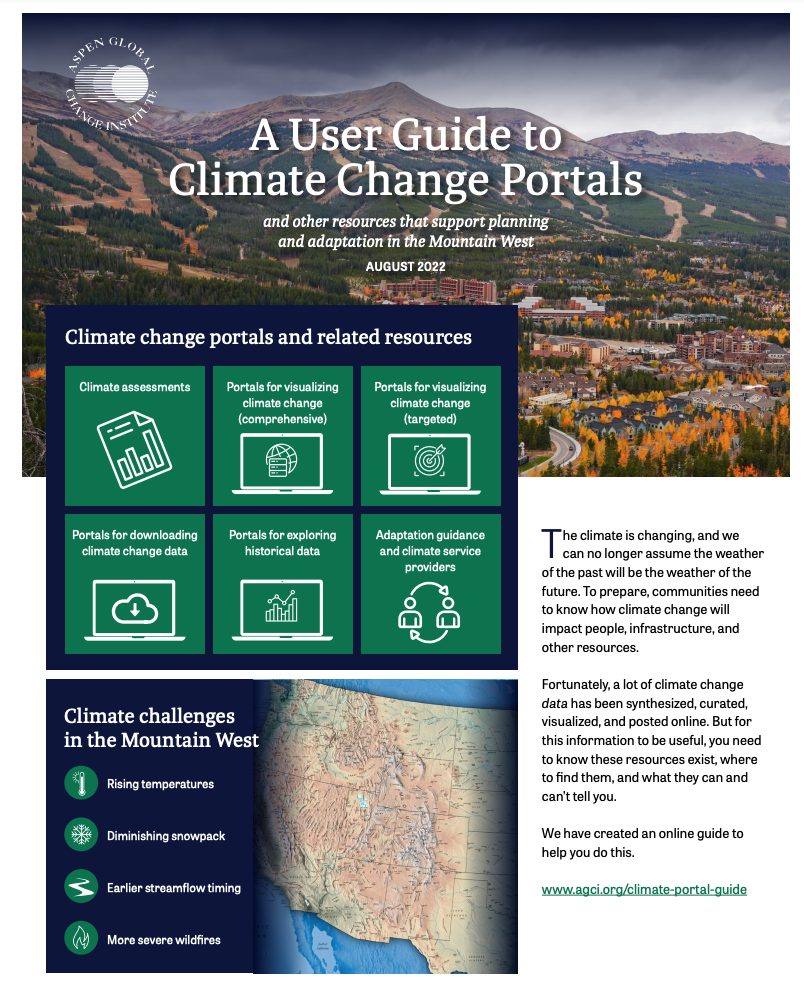
User Guide to Climate Change Portals
In August 2022, the Aspen Global Change Institute released a User Guide to Climate Change Portals. This guide aims to provide a first introduction to the vast and growing set of climate data portals that serve as resources to support planning and adaptation for the Mountain West. The Climate Toolbox is named as one of three of the 'most comprehensive sites' out there which are 'user-friendly and versatile' for exploring historical climate data and/or future projection climate data.
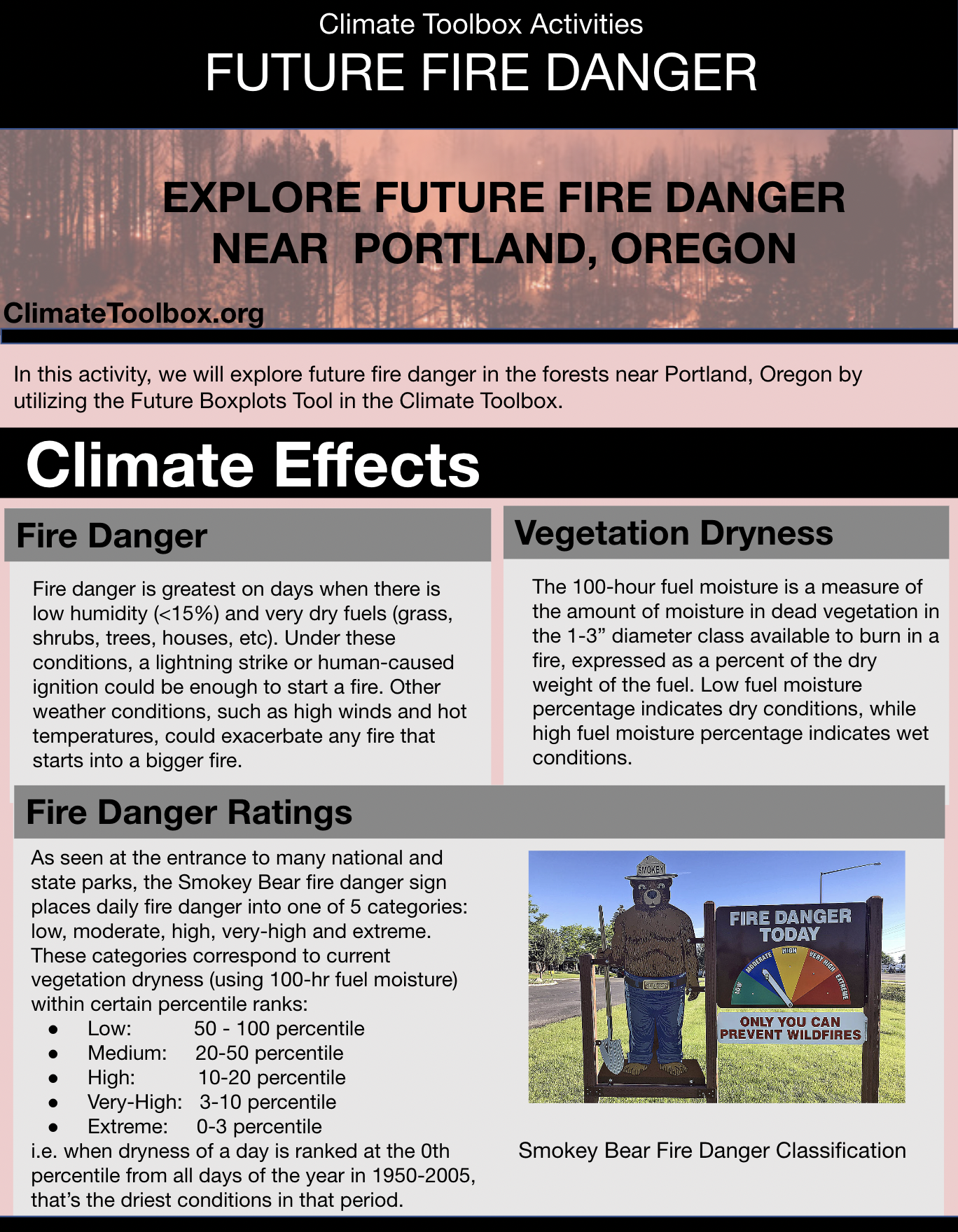
Climate Toolbox Workshop Activities Series
The Climate Toolbox Workshop Activities series highlight several activities which can be done using the Climate Toolbox to look at future impacts on a location in the areas of temperature, agriculture, forests, fire danger and streamflow. The following set of 6 activities was created for the 25th annual ENVX symposium at Lewis and Clark College in Portland, OR. Katherine Hegewisch presented a 1.5 hour hands-on workshop entitled 'Using maps and graphs from the Climate Toolbox to create climate data stories'. In this workshop, students broke into groups of 2-3 and worked on one of six climate data activities created for the workshop. A representative from each group then gave a 5-min presentation on their climate data story. The activities walk students through data stories related to Portland's future fire danger, forests, grape growing suitability, streamflow for drinking water, wolverine habitat and temperature climate analogs.
Here you can download the 2-page activity and see an example slide presentation that might result from students following the activity. There are currently 6 activities:
- Future Temperature
- Future Crop Suitability
- Future Wildlife Habitat
- Future Fire Danger
- Future Forests
- Future Streamflow
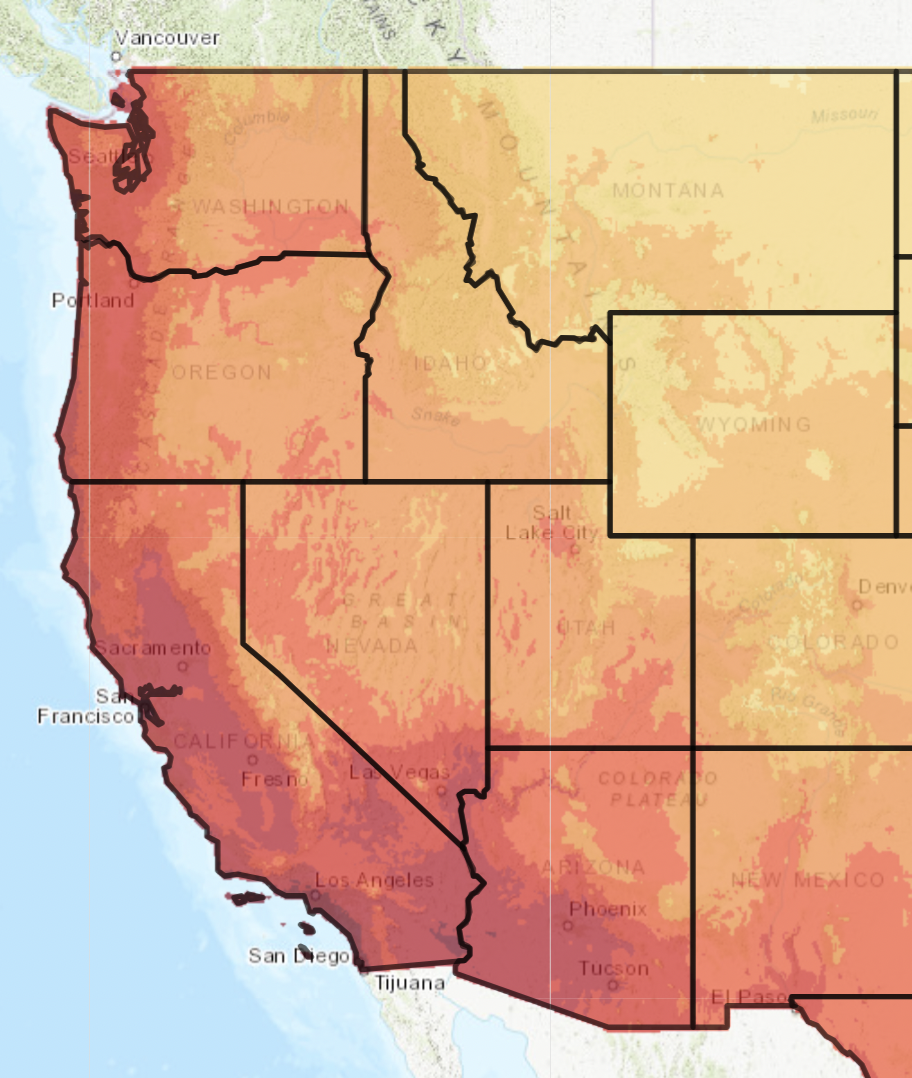
Educational Assignments Series
The Climate Toolbox can be used for educational assignments. There are many teachers that are already using the Toolbox to teach about climate change and climate impacts. Here we have some lessons created by Dr. John Abatzoglou and used in his university climate classes at UC Merced.
- Assignment on Climate Projections
- Assignment on Hydrological Models
- Assignment on Agricultural Applications
VIEW
CLIMATE PROJECTIONS
LESSON
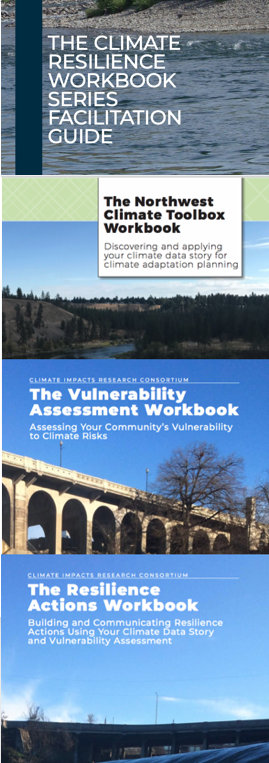
Climate Resilience Workbook Series
The Climate Resilience Workbook series helps users to access and apply global climate information at a local scale to develop relevant resilience actions. The series begins with an introduction to climate data analysis through The Climate Toolbox Workbook.
- The Facilitation Guide enables individuals to guide members of their community through the processes detailed in the workbooks. The guide includes a model agenda, facilitator's agenda, presentation materials, and guided exercises for each module in the workbook.
- The Climate Toolbox Workbook is a user’s guide to the Climate Toolbox, providing a road map for users to analyze climate information and communicate climate data stories, data-driven narratives about climate impacts and trends relevant at the community level.
- The Vulnerability Assessment Workbook provides a framework to integrate those data analyses with judgement and choices.
- The Resilience Actions Workbook provides tools to help understand the human landscape of a community and plan resilience actions that integrate the outputs from the first two workbooks.
Questions around climate information and climate change are far-reaching and can be overwhelming. The Climate Resilience Workbook series seeks to help users develop skills in manageable chunks; learn how to analyze, integrate, and use information from a range of sources; and develop plans that are actionable at a local scale. We hope that by investigating discrete issues, the holistic picture becomes clearer.
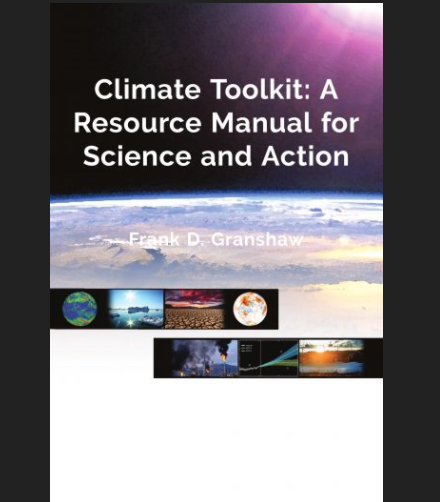
Climate Toolkit: A Resource Manual for Science and Action
The Climate Toolkit is a resource manual designed to help the reader navigate the complex and perplexing issue of climate change by providing tools and strategies to explore the underlying science. As such it contains a collection of activities that make use of readily available on-line resources developed by research groups and public agencies(such as the Climate Toolbox). These include web-based climate models, climate data archives, interactive atlases, policy papers, and “solution” catalogs. Unlike a standard textbook, it is designed to help readers do their own climate research and devise their own perspective rather than providing them with a script to assimilate and repeat.
The activities in the manual are divided into five sections that include weather and climate basics, present climate impacts, past climate change, future change and impacts, and strategies for climate mitigation and adaptation. These are followed by three appendices which contain information about the on-line tools used in the activities in this manual; a catalog of on-line and print resources produced by research groups, government agencies, and community groups involved in climate and sustainability work; and background on the history and key players in the international climate negotiation process.
Though originally aimed at undergraduate non-science majors, the manual has been broadened for a wider audience in non-academic settings like community groups, service organizations, workplace study groups, and faith communities.
If you are an instructor adopting or adapting this textbook, please provide feedback here.